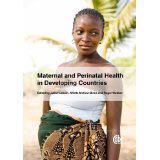- Also On
- RecommendationsSee All
 ManualPráctico Diagnostico Ortopedia-Traumatología DosUs, place us in your favorites https://www.facebook.com/ManualPracticodeDiagnosticoOrtopediaTraumatologiaabout 2 weeks ago
ManualPráctico Diagnostico Ortopedia-Traumatología DosUs, place us in your favorites https://www.facebook.com/ManualPracticodeDiagnosticoOrtopediaTraumatologiaabout 2 weeks ago Uwe NiederbergerIn open access. Thanks for publication! http://www.ncbi.nlm.nih.gov/pubmed/22911731about a month ago
Uwe NiederbergerIn open access. Thanks for publication! http://www.ncbi.nlm.nih.gov/pubmed/22911731about a month ago Constantin PolychronakosInteresting editorial about public funding for genomics in Canada http://www.ncbi.nlm.nih.gov/pubmed/22889850about a month ago
Constantin PolychronakosInteresting editorial about public funding for genomics in Canada http://www.ncbi.nlm.nih.gov/pubmed/22889850about a month ago
- Surprised? When physicians know a new medicine's clinical trial is Big Pharma funded, they're less likely to prescribe http://bit.ly/QFQPP8
- Likes
- The Right to Research CoalitionNon-Profit Organization
- The bumblebee emerges from this new PLOS BIOLOGY study as a shrewd navigator walking an energetic tightrope, writes Roli Roberts http://bit.ly/Ulrmef
- Coconut water lovers may want to read this guest blog post on how it stacks up against just plain water... http://bit.ly/SUW2b9
- Is it an Olivetti Lettera 35 typewriter or a light interference pattern transposed on to a reflecting surface by a split laser beam? http://bit.ly/S3ZA8q
- Only 2nd new African primate species found in 28 years...Lesula are shy, quiet and occur in small groups in lowland evergreen tropical forests On @PLOSONE: http://ow.ly/dGUoY
- What the community is saying about a new PLOS ONE study:
"Why Most Biomedical Findings Echoed by Newspapers are False"... ow.ly/dFvCz These astute comments come via Twitter in the last 24hrs....
Anna_Webb “@CaulfieldTim: Cool study. #PLOS:...See More
Why Most Biomedical Findings Echoed by Newspapers are False. dx.plos.org/10.1371/journa…”> fascinating 4 minutes ago · reply ·
UncommonJohn Study shows why you shouldn't necessarily believe news reports of scientific findings. bit.ly/QMLtp9
Keith_Laws Why media reports of research often wrong #PLOS via @CaulfieldTim @qmulbioethics bit.ly/UJS2aP focus on ADHD publications
brainsidea 'B/c newspapers echo initial ADHD findings appearing in prominent journals, they report on uncertain findings...' bit.ly/QMLtp9
sxbegle Caveat lector:most of the biomed rsrch in the news is wrong.E.g. 7 of 10 widely-covered ADHD studies were later refuted:plosone.org/article/info%3… 5 hours ago
saraheverts Studies w huge news coverage often refuted/"strongly attenuated" by later neglected work bit.ly/UJS2aP
bmossop Using ADHD as case study, researchers say newspapers zero in on high impact journal results, miss followup studies bit.ly/QNvozx 14 hours ago ·
BernScience THIS is the problem w science in the 24-hr news cycle: Media covers early findings, but not refutations ow.ly/dFx34 in @PLOSONE 20 hours ago ·
east_j_higashi あとでよむめも Why Most Biomedical Findings Echoed by Newspapers Turn Out to be False: The Case of ADHD plosone.org/article/info%3… 20 hours ago · - New study: Misleading media spin on clinical trials tied to abstracts overstating results http://bit.ly/REy8z7
- Tuesday morning all PLOS websites are down or slow due to an ISP network problem...they're working on it and we'll keep you posted.
- All things female fitness from the PLOS ONE archives with research front and center http://bit.ly/OgueMs
- Don't miss this timely PLOS Biology book review by UNC marine ecologist John Bruno and business economics undergrad Lauren-Kristine Pryzant who note that “The African nations where [authors] McClanahan and Cinner work emit relatively little...carbon dioxide per capita; therefore, mitigation at a global scale is largely beyond reach. For these nations, adaption is the only means to cope with a changing climate.”See More
http://blogs.plos.org/blog/2012/09/06/what-to-do-when-the-oceans-rise/ - "To speed the process of publishing biodiversity information, to improve access to this information, and to help reduce the ‘taxonomic impediment’ that hinders our cataloguing of the living world.” http://bit.ly/TjHgcV
- In a new initiative, PLOS removes barriers for research publication by scientists in low and middle income countries by lowering fees http://bit.ly/OPFvhP
- Dazzle your Labor Day BBQ quests with this science tidbit from PLOS ONE...http://bit.ly/R3G3zW
- Seth Mnookin crowdsources his latest post and publishes the the sum total of wisdom he collected with storify...http://bit.ly/OKmr6s
- For Eagleman, there can be different neuronal populations that give different estimates – conflicting information, so to speak, but only one comes to consciousness awareness, writes Daniel Lende. http://blogs.plos.org/neuroanthropology/2012/08/25/david-eagleman-neuroscience-incognito-and-perceptions-of-the-brain/
- ActivitySeptemberPeople Who Like ThisVisits4603















![Photo: Don't miss this timely PLOS Biology book review by UNC marine ecologist John Bruno and business economics undergrad Lauren-Kristine Pryzant who note that “The African nations where [authors] McClanahan and Cinner work emit relatively little carbon dioxide per capita; therefore, mitigation at a global scale is largely beyond reach. For these nations, adaption is the only means to cope with a changing climate.”
http://blogs.plos.org/blog/2012/09/06/what-to-do-when-the-oceans-rise/](http://web.archive.org./web/20120921182622im_/http://sphotos-a.xx.fbcdn.net/hphotos-snc7/c0.0.403.403/p403x403/309114_10152106118705595_1867240402_n.jpg)




